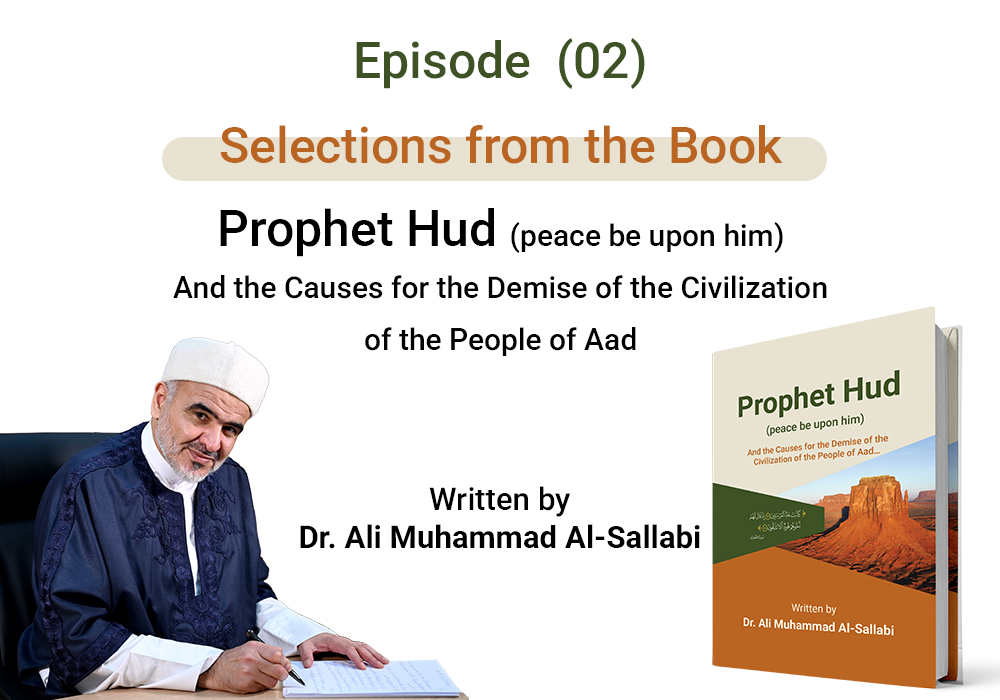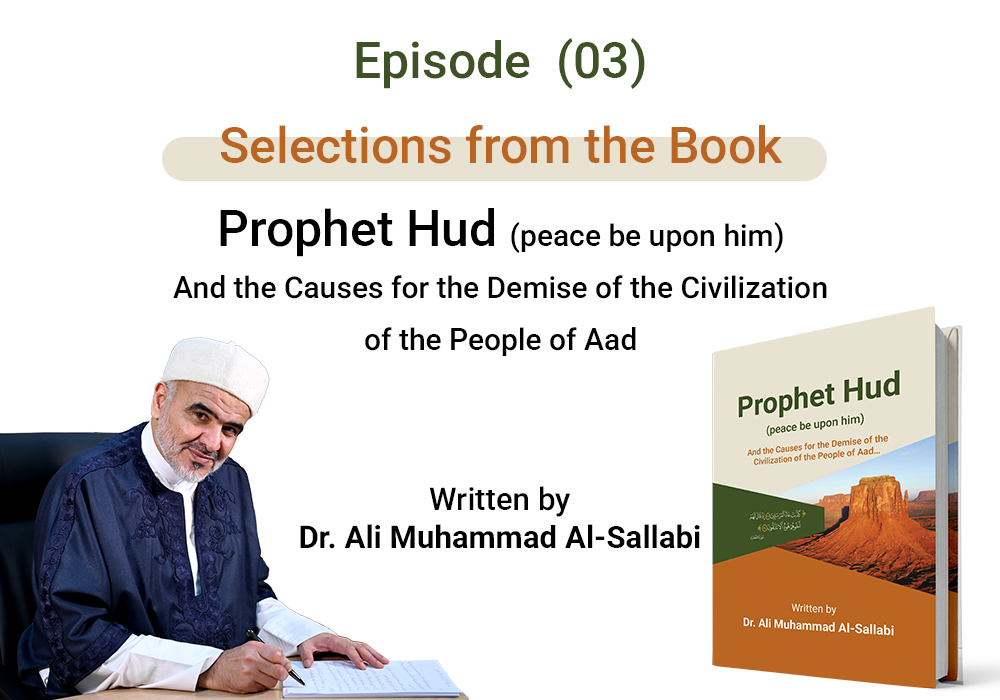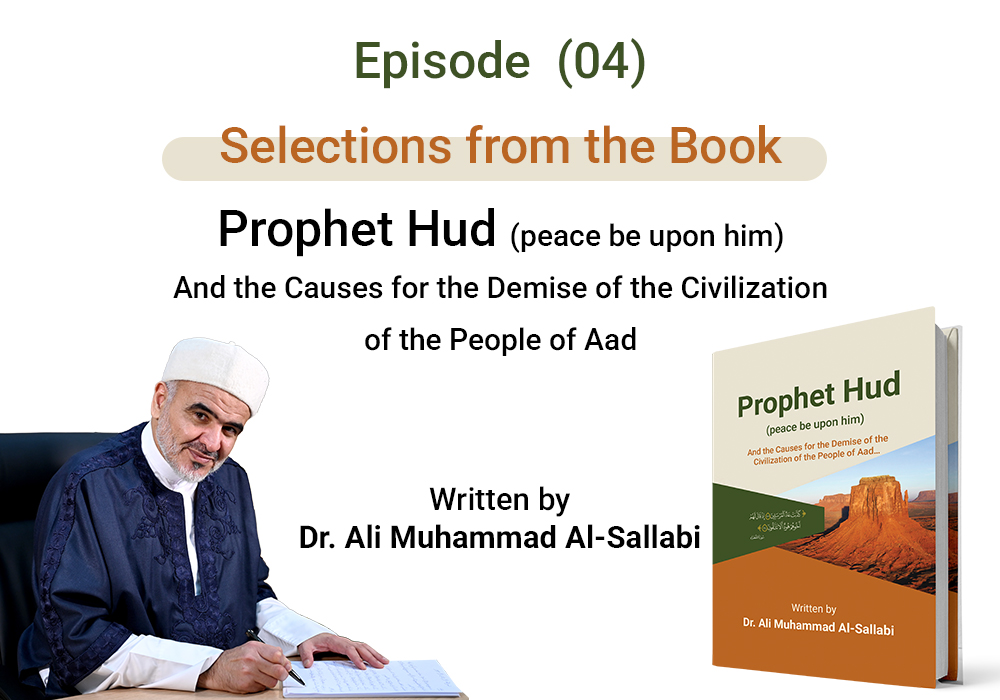The Understanding of Noah (peace be upon him) in Dealing with Divine Sunnahs
Selections from the Book Prophet Hud (peace be upon him) And the Causes for the Demise of the Civilization of the People of Aad…
Written by Dr. Ali Muhammad al-Sallabi...
Episode (02)
The leadership of civilizations, the upbringing of people, and their advancement are subject to laws, principles, and norms that govern the course of individuals, societies, nations, and peoples. When reflecting on the life of Noah (peace be upon him), we see that he dealt with these divine laws with wisdom, exceptional ability, and great success granted by Allah. These divine Sunnahs are the fixed decrees of Allah in the universe, which also apply to human beings in every time and place, and they are numerous.
A careful examination of the verses of the Holy Qur’an reveals that they are filled with discussions about Allah’s Sunnahs, which do not change or alter. The Holy Qur’an gives special attention to highlighting these principles, directing attention toward them, drawing lessons from them, and acting accordingly to establish a righteous and happy society in accordance with Allah’s commands.
When the Holy Qur’an directs people's attention to Allah’s Sunnahs in the earth, in the movement of history, and in the stories of the messengers, it brings them back to the fundamental principles that govern these processes. The natural laws that regulate the universe, nations, peoples, states, and individuals are in effect and do not fail; events do not unfold randomly or haphazardly. Instead, they follow these divine principles. If Muslims study these Sunnahs and grasp their meanings, the wisdom behind events will become clear to them, the objectives behind occurrences will be understood, and they will feel assured about the consistency of the system that governs events. They will also recognize the wisdom embedded within this system and will be able to anticipate the course of events based on past experiences. They will not rely merely on their identity as Muslims to achieve victory and empowerment without adopting the necessary means that lead to them. The laws that govern life are the same; what has happened in the past will continue to occur in every era.
The first condition for properly dealing with divine Sunnahs and cosmic principles in individuals, societies, and nations is to understand—indeed, to deeply comprehend—these Sunnahs in a comprehensive and enlightened manner. This understanding must encompass how they operate within the divine system, a concept we refer to as "the Fiqh of divine Sunnahs". From this understanding, we can derive social laws and civilizational equations based on a clear grasp of these principles.
Noah’s (peace be upon him) movement toward monotheism—calling for the exclusive worship of Allah, urging people to fear Him, and advocating for the development of the earth in accordance with divine law—was built, after Allah’s guidance, on structuring his call, shaping an ideal, righteous, and civilized human being, and engaging with the jurisprudence of divine Sunnahs and the principles of civilization. From his story, we learn the following:
- The importance of leadership in building civilization.
- The significance of a well-organized, faithful community in the development and stewardship of the earth.
- The necessity of divine revelation to clarify the divine path regarding beliefs, ethics, worship, transactions, values, and worldviews.
- The importance of the Sunnah of gradual progression, one of Allah’s established Sunnahs in creation and the universe. This is a crucial principle that the Muslim community must consider in its efforts to rise and establish Allah’s religion on earth.
It became clear in the biography of Noah (peace be upon him) that this divine Sunnah was a guiding principle. Since the path was long, he proceeded with balance, patience, and great perseverance, advancing gently toward the set goals—showing kindness to people, selecting believers for his call, resisting his opponents, and finally reaching the stage of victory and empowerment after the great flood.
Noah (peace be upon him) dealt with the Sunnah of gradual progression with wisdom, intelligence, and foresight. He upheld this principle in governing people and nurturing the faithful generation that bore the responsibility of the second human civilization in its spiritual, intellectual, logical, and emotional aspects.
- Ali Muhammad al-Sallabi, Prophet Hud (peace be upon him) And the Causes for the Demise of the Civilization of the People of Aad, pp. 95-98.
- The Civilizational Project for the Renaissance of the Nation, p. 58.
- In the Shade of the Qur’an, Sayyid Qutb, 1/478.
For further information and review of the sources for the article, see:
The Book of Prophet Hud (peace be upon him) And the Causes for the Demise of the Civilization of the People of Aad on the official website of Sheikh Dr. Ali Muhammad al-Sallabi:





